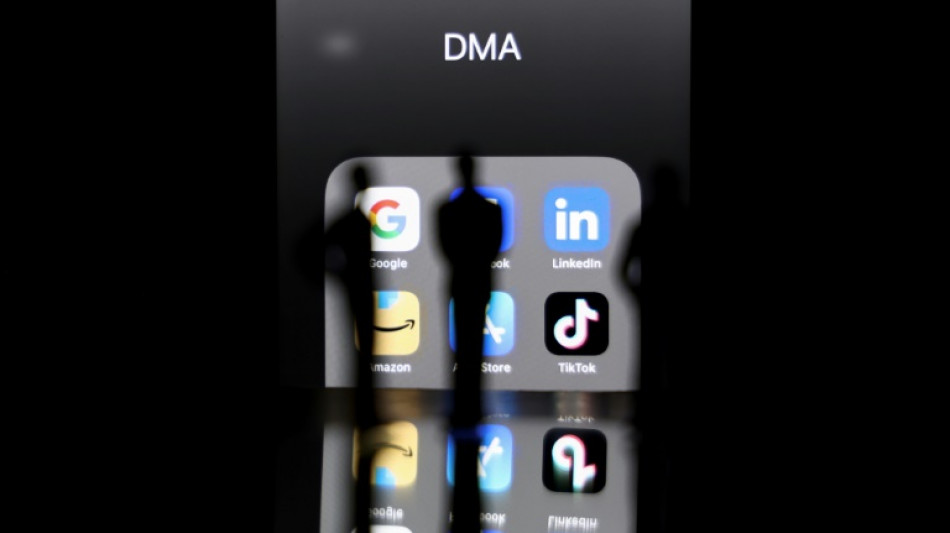
-
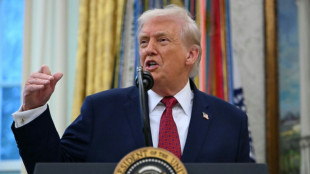 BBC says will fight Trump's $10 bn defamation lawsuit
BBC says will fight Trump's $10 bn defamation lawsuit
-
Stocks retreat ahead of US jobs, oil drops on Ukraine hopes
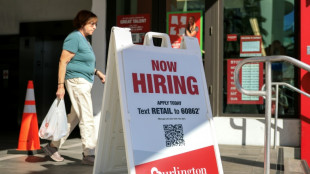
-
 Suicide bomber kills five soldiers in northeast Nigeria: sources
Suicide bomber kills five soldiers in northeast Nigeria: sources
-
EU set to drop 2035 combustion-engine ban to boost car industry

-
 Australia's Green sold for record 252 mn rupees in IPL auction
Australia's Green sold for record 252 mn rupees in IPL auction
-
Elusive December sun leaves Stockholm in the dark

-
 Brendan Rodgers joins Saudi club Al Qadsiah
Brendan Rodgers joins Saudi club Al Qadsiah
-
Thailand says Cambodia must announce ceasefire 'first' to stop fighting

-
 M23 militia says to pull out of key DR Congo city at US's request
M23 militia says to pull out of key DR Congo city at US's request
-
Thousands of glaciers to melt each year by mid-century: study

-
 China to impose anti-dumping duties on EU pork for five years
China to impose anti-dumping duties on EU pork for five years
-
Nepal starts tiger census to track recovery

-
 Economic losses from natural disasters down by a third in 2025: Swiss Re
Economic losses from natural disasters down by a third in 2025: Swiss Re
-
Indonesians reeling from flood devastation plea for global help

-
 Timeline: How the Bondi Beach mass shooting unfolded
Timeline: How the Bondi Beach mass shooting unfolded
-
On the campaign trail in a tug-of-war Myanmar town

-
 Bondi Beach suspect visited Philippines on Indian passport
Bondi Beach suspect visited Philippines on Indian passport
-
Kenyan girls still afflicted by genital mutilation years after ban

-
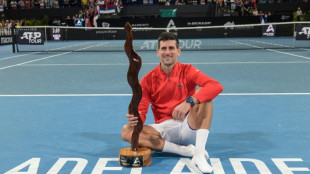 Djokovic to warm up for Australian Open in Adelaide
Djokovic to warm up for Australian Open in Adelaide
-
Man bailed for fire protest on track at Hong Kong's richest horse race

-
 Men's ATP tennis to apply extreme heat rule from 2026
Men's ATP tennis to apply extreme heat rule from 2026
-
Cunningham leads Pistons past Celtics, Nuggets outlast Rockets

-
 10-year-old girl, Holocaust survivors among Bondi Beach dead
10-year-old girl, Holocaust survivors among Bondi Beach dead
-
Steelers edge towards NFL playoffs as Dolphins eliminated

-
 Australian PM says 'Islamic State ideology' drove Bondi Beach gunmen
Australian PM says 'Islamic State ideology' drove Bondi Beach gunmen
-
Canada plow-maker can't clear path through Trump tariffs

-
 Bank of Japan expected to hike rates to 30-year high
Bank of Japan expected to hike rates to 30-year high
-
Cunningham leads Pistons past Celtics

-
 Stokes tells England to 'show a bit of dog' in must-win Adelaide Test
Stokes tells England to 'show a bit of dog' in must-win Adelaide Test
-
EU to unveil plan to tackle housing crisis

-
 EU set to scrap 2035 combustion-engine ban in car industry boost
EU set to scrap 2035 combustion-engine ban in car industry boost
-
Australian PM visits Bondi Beach hero in hospital

-
 'Easiest scam in the world': Musicians sound alarm over AI impersonators
'Easiest scam in the world': Musicians sound alarm over AI impersonators
-
'Waiting to die': the dirty business of recycling in Vietnam

-
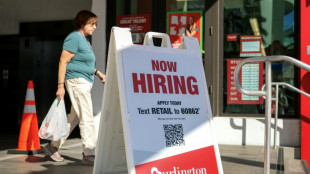 Asian markets retreat ahead of US jobs as tech worries weigh
Asian markets retreat ahead of US jobs as tech worries weigh
-
Security beefed up for Ashes Adelaide Test after Bondi shooting

-
 Famed Jerusalem stone still sells despite West Bank economic woes
Famed Jerusalem stone still sells despite West Bank economic woes
-
Trump sues BBC for $10 billion over documentary speech edit
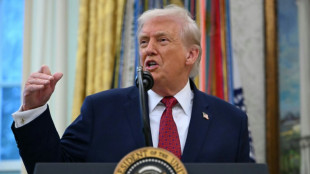
-
 Chile follows Latin American neighbors in lurching right
Chile follows Latin American neighbors in lurching right
-
Will OpenAI be the next tech giant or next Netscape?
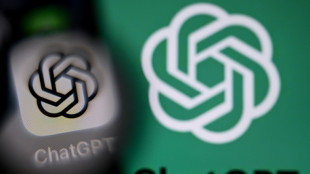
-
 Khawaja left out as Australia's Cummins, Lyon back for 3rd Ashes Test
Khawaja left out as Australia's Cummins, Lyon back for 3rd Ashes Test
-
Australia PM says 'Islamic State ideology' drove Bondi Beach shooters

-
 Scheffler wins fourth straight PGA Tour Player of the Year
Scheffler wins fourth straight PGA Tour Player of the Year
-
Tax1099 expands its E-Filing Suite with the launch of 990 series for Nonprofits

-
 How to Choose the Best Plastic Surgeon in Tampa, FL: Gruber Plastic Surgery Releases Patient Safety Checklist
How to Choose the Best Plastic Surgeon in Tampa, FL: Gruber Plastic Surgery Releases Patient Safety Checklist
-
EMCORE Environmental Test Services Officially Launches in Budd Lake, New Jersey

-
 Silver Wolf Completes Acquisition of the Ana Maria Project
Silver Wolf Completes Acquisition of the Ana Maria Project
-
Anew Climate Announces Acquisition of P6 Technologies' Carbon Intensity Platform

-
 Abasca Resources Provides Exploration Update at its Loki Flake Graphite Deposit and Granting Stock Option
Abasca Resources Provides Exploration Update at its Loki Flake Graphite Deposit and Granting Stock Option
-
The U.S. Polo Assn. Palm Beaches Marathon Celebrates Record-Breaking Weekend in West Palm Beach, Florida


One year in, EU turning up heat in big tech fight
If 2024 already looks like an annus horribilis for big tech in the EU, the months ahead could prove a winter of discontent as the bloc wields a fortified new legal armoury to bring online titans to heel.
Since August 2023, the world's biggest digital platforms have faced the toughest ever tech regulations in the European Union -- which shows no sign of slowing down in enforcing them.
Brussels scored its first major victory after forcing TikTok to permanently remove an "addictive" feature from a spinoff app in Europe in August, a year after content moderation rules under the bloc's Digital Services Act (DSA) started to apply.
That followed a seven-day period earlier in the summer in which Brussels issued back-to-back decisions targeting Apple, Meta and Microsoft.
And more is to come before 2024 is over, say officials.
The EU's moves are all thanks to two laws, the DSA -- which forces companies to police online content -- and its sister competition law, the Digital Markets Act (DMA) -- which gives big tech a list of what they can and can't do in business.
Since the DMA curbs kicked in in March, the EU has notably pressured Apple to back down in a spat with Fortnite maker Epic over a gaming app store.
"The European Commission is doing the job: it is implementing the DMA with limited resources and within a short timeframe compared to lengthy competition cases," said EU lawmaker Stephanie Yon-Courtin, who focuses on digital issues.
Jan Penfrat, senior policy advisor at online rights group EDRi, says changes are already visible: the DSA giving users the "right to complain" when content is removed or accounts are suspended, or the DMA allowing them to select browsers and search engines via choice screens.
"This is just the beginning," Penfrat said.
He notes for instance that EDRi and other groups in July compiled a list of areas where Apple fails to follow the DMA. "We expect the commission to go after those as well in time," Penfrat told AFP.
- High-profile tests -
Apple is the biggest thorn in the EU's side as the DMA's chief critic, claiming it puts users' security at risk.
The iPhone maker became the first company in June to face formal accusations of breaking the DMA's rules and faces heavy fines unless it addresses the charges.
Apple announced changes to the App Store on August 8 to comply with the DMA, although smaller tech firms under the Coalition for App Fairness slammed them as "confusing". The EU is now evaluating Apple's plans.
It is too early to say whether Apple will fall into line without the EU's heavy hand but one thing is clear: Brussels is ready for a fight.
Another high-profile test of the bloc's new powers will be X, with regulators to decide as early as September whether the former Twitter should be made to comply with the DMA.
The DSA's rules on curbing disinformation and hate speech have already sparked a spectacular clash between X's billionaire owner Elon Musk and the bloc's digital chief Thierry Breton -- with the spectre of fines or an outright EU ban on the site if violations persist.
- Full speed -
EU competition chief Margrethe Vestager has said that Brussels is going at "full speed".
This was always the goal: to cut short the length of competition investigations, which lasted years, to a maximum of 12 months under the DMA.
But companies can challenge fines or decisions in the EU courts, which could mean years of subsequent legal battles, lawyers say.
And difficulties can also come from elsewhere: Apple said in June it would delay the rollout of new AI features in Europe because of "regulatory uncertainties".
EDRi's Penfrat accused Apple of fearmongering by blaming the EU for certain features not arriving in the bloc in order "to put pressure on the commission to not be too tough in the enforcement".
- Pressure building -
Apple aside, big tech isn't happy with DMA action so far.
"Instead of announcing possible punitive measures with political posturing, these probes under the DMA should focus on fostering open dialogue between the European Commission and the companies concerned," Daniel Friedlaender, head of tech lobby group CCIA Europe told AFP.
Undeterred, Brussels is turning up the heat.
In addition to potential new DMA curbs on X, the EU could soon add Telegram to its list of "very large" platforms, such as WhatsApp, that face the DSA's strictest rules.
Brussels wants no corner of the digital sphere left untouched.
That includes the critical area of artificial intelligence, with the EU currently looking into deals between giants and generative AI developers, such as Microsoft and its $13-billion tie-up with ChatGPT maker OpenAI.
J.Oliveira--AMWN


